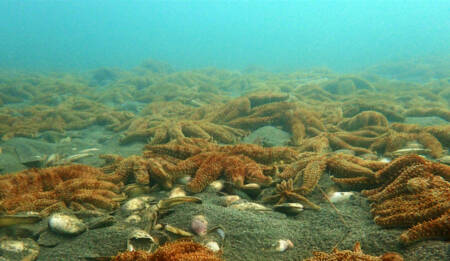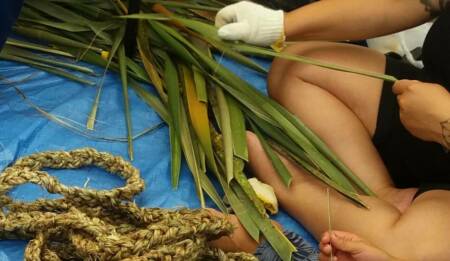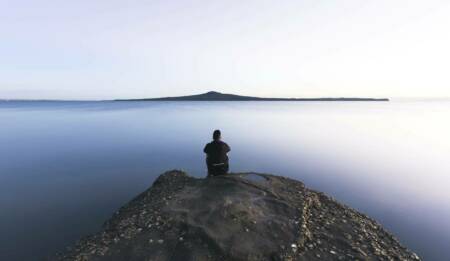Building a seaweed sector
Seaweed has enormous potential to contribute to the Sustainable Seas National Science Challenges' vision of healthy marine ecosystems that provide value for every New Zealander. With the right framework grounded in ecosystem-based management (EBM) principles, a thriving seaweed sector could provide meaningful economic, environmental, social and cultural benefits locally and nationally.

Background
Globally, seaweed represents >30% of aquaculture production volume. Aotearoa New Zealand has more than 900 native seaweeds, a third of them endemic. There is a fledgling but highly dynamic seaweed sector, but gaps and barriers limit potential growth.
With the right framework grounded in ecosystem-based management (EBM) principles, a thriving seaweed sector could be possible in Aotearoa New Zealand.
Seaweed farming creates habitats and products with the potential for carbon sequestration and nutrient removal. These characteristics are particularly relevant to the sustainability principle of EBM and the blue economy more broadly.
This project is part of the New Zealand government’s Sustainable Seas National Science Challenge / Ko ngā moana whakauka.
Project details
The project is working with iwi, stakeholders, industry, researchers, and government agencies planning to operate in the sector as farmers or users of seaweed products.
It will review the current state of the seaweed sector, develop the framework and test it using case studies to understand scalability. This includes using previous market analysis to identify desirable attributes of seaweed and shortlist species with the highest potential.
The project will use the Oranga Tonutanga / Continued Sustenance framework of the four pou in the case study impact assessment. The four pou / poles are Te Ōhanga / economic; Te Pāpori /social; Te Taiao / environmental; and Te Ahurea / cultural.
What they hope to achieve
This project will create a New Zealand seaweed framework to fit within the broader blue economy. It will be adaptive and incorporate principles of EMB, Te Taio, the blue economy, and the four pou framework. It will focus on the needs of current and future seaweed sector stakeholders and participants to produce a framework they can implement collectively.
The case study approach will help understand the enabling mechanisms Māori will need at the start of the formation of this new national seaweed industry.
Resource







